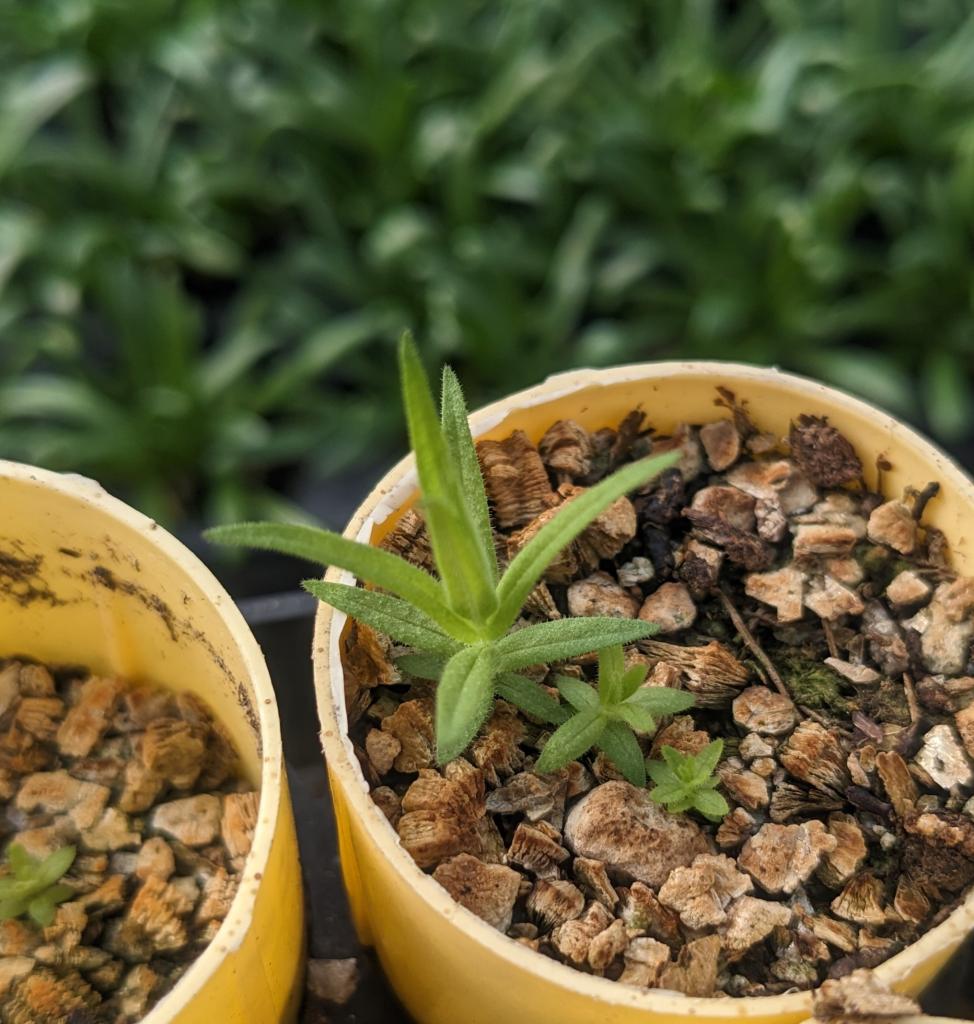It’s Always Spring in the Greenhouse
February 2023
On December 15th, when the rest of the world is scurrying around, finishing their holiday shopping, spring starts springing in our native plant production greenhouses. This production season we will seed almost 47,000 plugs.
Some, like this Lassen Paintbrush (Castilleja lassenensis) are destined to be planted back into restoration sites on Mt. Lassen in California (Photo 1). These plants are being grown in conjunction with the Sierra Institute.

Others, like this Riverbank Lupine (Lupinus rivularis) will be used to start seed amplification beds for the Coastal Native Seed Partnership (Photo 2). The greenhouse provides a perfect artificial environment to kick off plug production during the darkest days of our Pacific Northwest winter, ensuring that these babies are of sufficient size to be planted when the real spring comes.

Each species has particular requirements we must meet before they begin growing. For example, the endangered Willamette Daisy (Erigeron decumbens) requires 4 months of cold, moist conditions (stratification) before their seed will germinate. These conditions mimic the cold, dark, winter. We are grateful to Kiger Island Blues, whose cooler we rent for this purpose.

These Nelson’s checkermallow (Sidalcea nelsoniana), grown for the Greenbelt Land Trust, need to be scuffed or nicked (scarified) before the seed takes on water and germinates. In nature, they may be scarred by the teeth or hooves of animals, but in the greenhouse, we use 80 grit sandpaper! Another fascinating genus are the Castilleja. They form parasitic bonds with the root systems of other plants to get nitrogen: an essential nutrient for plant health. Since they have not yet formed that bond with a host in the greenhouse, we must provide them with extra fertilizer in the plug stage.
To help with the monumental task of caring for all these babies, and with all of the other work at our Corvallis, Oregon seed amplification farm fields, the Plant Materials Program is delighted to welcome Jeni Nugent to the team. Jeni jumped right in as our new Farm Technician on February 1st, and we are so excited to have her on the team!

A note from Jeni: “I am eager to expand my experience with agriculture to the world of habitat restoration and conservation. Nothing makes me happier than witnessing the germination, development, success, and the enormous potential of region-specific flora. Not only do I love the connection between plants, I admire the significance plants provide to all communities, human and non-human. I do hope to study these interactions further by pursuing a Master’s degree in Soil Science. Learning is a passion of mine—a passion I look forward to exploring at the Institute of Applied Ecology.”
A huge thanks to our partners with the Sierra Institute, the Coastal Native Seed Partnership, Kiger Island Blues, and Greenbelt Land Trust—we couldn’t do it without you.
